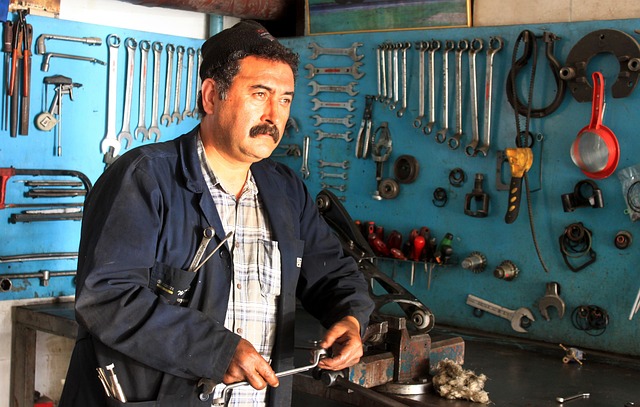Mechanic Training in Germany – Practical Skills for Technical Careers
In Germany, mechanic training programs are designed to build strong practical and engineering skills through structured learning and real workshop experience. Participants gain valuable knowledge in mechanical systems, maintenance, and modern tools, preparing them for a wide range of technical professions. These programs are ideal for those seeking a stable and skilled career path in the mechanical field.

Germany’s dual education system provides a proven pathway for individuals seeking to build careers in technical fields. Mechanic training programs are designed to equip learners with both theoretical knowledge and practical competencies, ensuring graduates are job-ready upon completion. Whether interested in automotive technology, industrial machinery, or precision engineering, these programs offer comprehensive skill development tailored to industry demands.
What Does Mechanic Training in Germany Involve?
Mechanic training in Germany typically follows the dual vocational education model, known as the Ausbildung system. This approach combines classroom instruction at vocational schools with hands-on training at companies or workshops. Trainees, called Auszubildende or Azubis, spend several days per week working directly with experienced professionals while attending school for theoretical lessons. The training period generally lasts between two and three-and-a-half years, depending on the specific mechanical specialty chosen. Core subjects include technical drawing, materials science, measurement techniques, machine operation, safety protocols, and quality control. Practical modules focus on diagnosing faults, performing repairs, assembling components, and operating specialized equipment. This immersive learning environment ensures trainees gain real-world competence alongside formal qualifications.
How Does Technical and Practical Education Prepare You for Industry?
Technical and practical education in Germany emphasizes learning by doing. Unlike purely academic programs, mechanic training prioritizes skill acquisition through repeated practice under professional supervision. Trainees work with actual machinery, tools, and materials used in their chosen field, allowing them to develop muscle memory and problem-solving abilities that cannot be replicated in a classroom. Workshops are equipped with industry-standard equipment, from precision measuring instruments to computer-aided design software and diagnostic tools. Instructors and mentors provide feedback, correct techniques, and share insights from years of professional experience. This hands-on approach builds confidence and competence, ensuring graduates can immediately contribute to their employers. Additionally, practical education fosters soft skills such as teamwork, communication, time management, and adaptability—qualities highly valued across technical industries.
What Engineering Skill Development Opportunities Are Available?
Engineering skill development within mechanic training programs covers a broad spectrum of competencies. Trainees learn to read and interpret technical blueprints, understand mechanical systems, and apply mathematical principles to solve real-world problems. Specialized tracks allow individuals to focus on areas such as automotive mechanics, industrial machinery maintenance, agricultural equipment, or precision mechanics for medical devices and instruments. Advanced modules may include hydraulics, pneumatics, electronics, welding, CNC machining, and computer-controlled systems. Many programs also introduce digital tools and Industry 4.0 concepts, preparing trainees for increasingly automated and interconnected manufacturing environments. Continuous skill development is encouraged throughout one’s career, with opportunities for further certifications, master craftsman qualifications, and specialized training in emerging technologies. This lifelong learning mindset ensures mechanics remain competitive and adaptable in evolving technical landscapes.
What Does Hands-On Workshop Training Look Like?
Hands-on workshop training is the cornerstone of mechanic education in Germany. Trainees spend significant time in well-equipped facilities where they perform tasks mirroring real job responsibilities. Under the guidance of skilled instructors, they disassemble and reassemble engines, troubleshoot electrical systems, calibrate instruments, and conduct preventive maintenance. Workshops simulate actual working conditions, complete with safety protocols, quality standards, and time constraints. Trainees rotate through different stations and projects, gaining exposure to various tools, techniques, and challenges. Group projects encourage collaboration and peer learning, while individual assignments build personal accountability and technical proficiency. Mistakes are treated as learning opportunities, with instructors providing constructive feedback to refine techniques. This immersive environment accelerates skill acquisition and builds the practical expertise employers seek. By the time training concludes, graduates have accumulated hundreds of hours of hands-on experience, making them valuable assets to potential employers.
What Career Opportunities in Mechanics Exist After Training?
Upon completing mechanic training in Germany, graduates have access to a wide range of career opportunities across multiple industries. Automotive mechanics work in repair shops, dealerships, or manufacturing plants, servicing passenger vehicles, trucks, or specialized transport equipment. Industrial mechanics maintain and repair machinery in factories, production facilities, and logistics centers. Precision mechanics specialize in delicate instruments used in medical, optical, or scientific applications. Agricultural mechanics service farming equipment, while aircraft mechanics work in aviation maintenance. Many mechanics eventually advance to supervisory roles, quality assurance positions, or technical sales. Others pursue further education to become master craftsmen, technical trainers, or engineering technicians. Self-employment is also common, with experienced mechanics opening their own workshops or consulting businesses. The skills acquired during training are highly transferable, providing flexibility to shift between sectors or specialize further based on personal interests and market demand.
Conclusion
Mechanic training in Germany offers a structured, practical pathway into rewarding technical careers. Through the dual education system, trainees gain valuable hands-on experience alongside theoretical knowledge, preparing them for diverse roles across automotive, industrial, and precision mechanics sectors. With strong career prospects, opportunities for advancement, and a culture of continuous skill development, mechanic training remains an attractive option for individuals seeking meaningful work in engineering and technical fields. The combination of rigorous training, industry collaboration, and recognized qualifications ensures graduates are well-equipped to meet the demands of modern technical professions.




